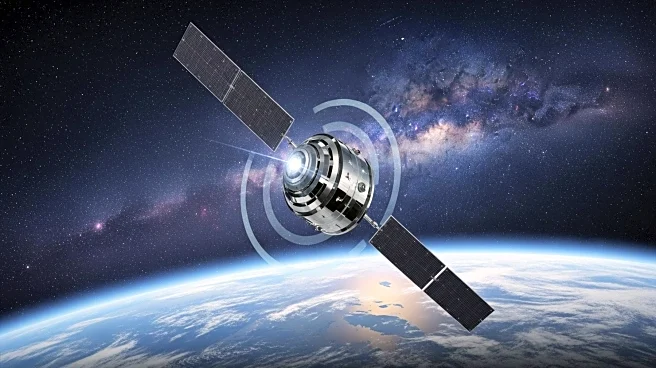What's Happening?
Officials from 11 industry organizations have called on the Federal Communications Commission (FCC) to reconsider the spectrum sharing limits for low Earth orbit (LEO) satellites. These limits, which were established over two decades ago, aim to protect satellites in geostationary orbit by capping the strength of radio signals from LEO satellites. In a letter addressed to FCC Chair Brendan Carr, the industry groups argue that lifting the equivalent power-flux density (EPFD) limits would benefit both consumers and the industry. Companies like SpaceX and Amazon, which are developing megaconstellations in LEO, support the revision of these rules, while legacy geostationary operators prefer maintaining the current regulations. The FCC announced in April that it is reviewing these rules, although a global review is not scheduled for the International Telecommunication Union’s next World Radiocommunication Conference in 2027.
Why It's Important?
Revising the spectrum sharing limits could have significant implications for the U.S. satellite industry and consumers. By lifting the EPFD limits, the FCC could enhance internet access for rural communities and improve connectivity for first responders during emergencies. Additionally, it could lower the barrier to entry for new players in the LEO satellite market, fostering increased competition and potentially leading to better services and lower prices. This move could also help the U.S. satellite industry remain competitive on a global scale by ensuring that advanced technologies are not hindered by outdated regulations. The potential benefits include greater access to LEO broadband, increased competition, and improved service quality for American consumers.
What's Next?
The FCC is currently reviewing the spectrum sharing rules, and the outcome of this review could lead to significant changes in the regulatory landscape for LEO satellites. If the FCC decides to update the EPFD limits, it may also advocate for similar reforms at the international level, particularly at the International Telecommunication Union. The decision could prompt reactions from various stakeholders, including satellite companies, consumer advocacy groups, and international regulatory bodies. The industry groups have urged the FCC to champion these reforms both domestically and internationally to unlock the full potential of LEO satellites.










